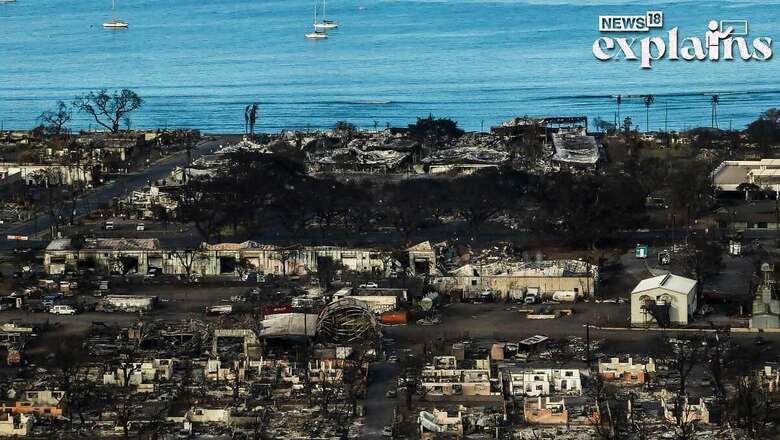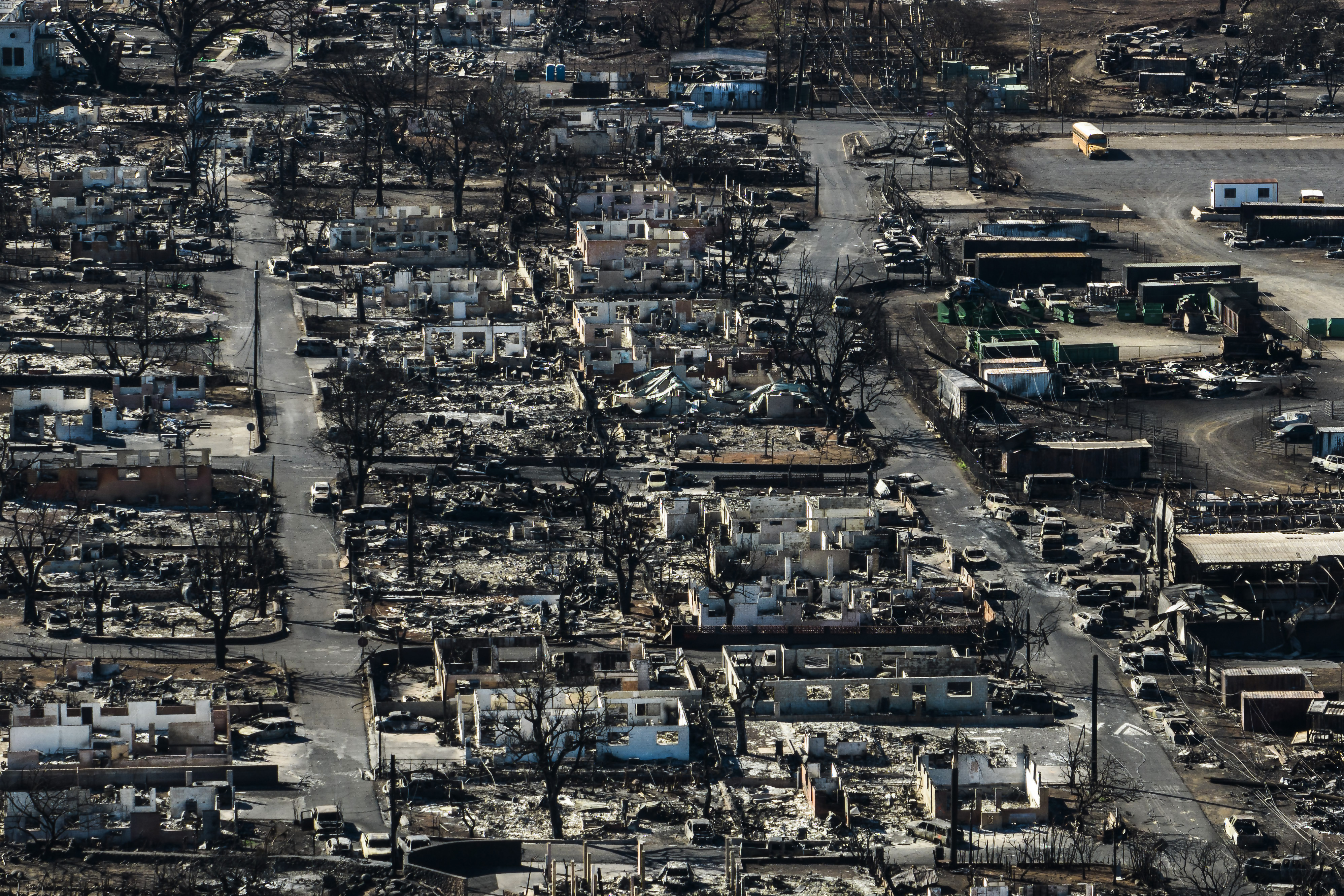
views
The wildfire in Maui, considered deadliest in more than a century, exposed an underlying problem ailing the Hawaii islands. When the fire raged in Maui, golf courses glistened, hotels filled their pools and corporations stocked water to sell to luxury estates, while fire hoses ran dry.
Days after the fire killed more than 111 people, there is a mounting criticism against Hawaii official for delaying access to water. Many of those who were killed are believed to have been trapped in their homes or caught in their cars as they made a desperate last-minute bid to escape.
The collapse of the water system is one of the factors that ended up producing what is now the deadliest US wildfire in more than 100 years.
Hawaii delayed diverting water for Wildfires
Fire crews who were deployed to douse the fire said that the water pressure was increasingly feeble and there wasn’t enough water to tackle the blaze that was intensified with the wind.
“There was just no water in the hydrants,” Keahi Ho, one of the firefighters who was on duty in Lahaina, told The New York Times.

Firefighters, who had not enough water to put out the fire, instead focused on evacuations, picking up those who were stranded and taking them towards safety.
A state agency in Maui delayed a water management company’s request to make more water available to fight the devastating wildfires on Maui, a report in CNN said.
West Maui Land Company, which manages water supply companies, has complained in a letter to the Hawaii Commission on Water Resource Management that the agency failed to quickly approve his company’s request to divert stream water to nearby reservoirs.
As the fire raged on the island, firefighters depleted the little water they had in their reservoirs and tanks, so they requested that the Hawaii water agency divert water from streams so that they could use it for fire control.
Instead of approving the request, the commission asked if the Maui Fire Department had requested permission to dip into the reservoirs and instructed them to first consult with a local farmer to determine how a diversion of the water supply would affect him, according to Outlook Magazine.
However, it’s unclear whether a prompt approval of the request would have significantly bolstered firefighting efforts in Lahaina.
Long-running battle over Water
Maui, an island part of the Hawaiian archipelago, has been long-running conflict over west Maui’s most precious natural resource- water.
According to a report in The Guardian, the real estate developers and luxury resorts have been stifling the water rights of Native Hawaiians for nearly two centuries.
When the flames approached, the locals fled with their food, belongings and some water as they feared that the large players on the island in the garb of emergency get a chance to grab west Maui’s water.
In a piece for the Guardian, Naomi Klein and Kapuaʻala Sproat ‘Disaster capitalism’ a tactic of “exploiting moments of extreme collective trauma” to push through unpopular laws to benefit a small elite group.
The two writers argued that water, which is very limited on the island, has been extracted to benefit outside interests across the western region of Maui for over a century. It was used earlier for large sugar plantations and now they are being used for their corporate successors.
Many companies have devoured the natural resources to develop mansions, colonial-style subdivisions, luxury resorts and golf courses which were earlier plantations of sugarcane and pineapple. While the plantation economy took a tremendous toll on water draining indigenous ecologies of their natural moisture, the area dried up with the waterbodies like wells and fish pond vanishing to make place for hotels and parking lots.

















Comments
0 comment